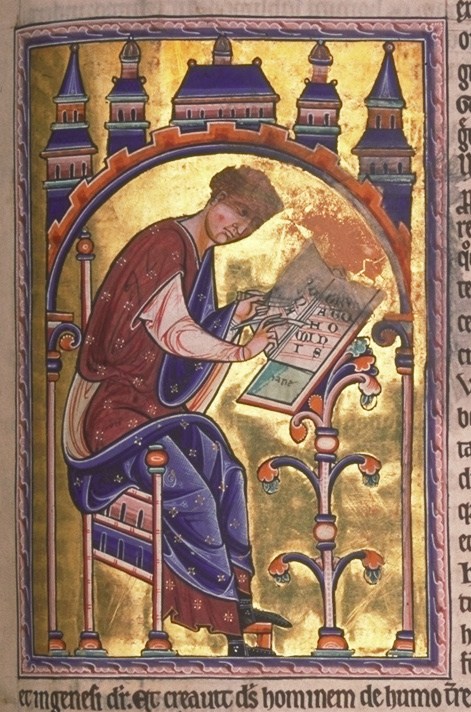St Isidore of Seville
Spain, in the seventh century, had been hit hard by the barbarian invasions that had ravaged western Europe. It had been swamped by the Vandal tribe, then the Alans and the Suevi, and finally by the Visigoths who drove out their Germanic rivals and established a kingdom in much of the Iberian peninsula. The destruction caused by these incursions and the primitive disunity into which the West had fallen had resulted in a loss of knowledge and higher culture. Isidore (560-636) set out to preserve what civilization remained in Spain.
He was born into a prominent family that produced bishops for the Catholic Church at a time when the ruling class of Visigoths were converting from Arianism but when the heresy still had a hold on many inhabitants. The Gothic habit of killing their kings for opposing the wishes of the nobility added further weakness and confusion. (These murders were so frequent that in the Middle Ages the term morbus Gothicus or “Gothic disease” became a jocular term for political assassination.) In this situation of shaky monarchy and religious division Catholic bishops became an important source of authority. As Bishop of Seville Isidore worked for improved clerical education, national unity and the spread of learning.
Isidore’s most memorable accomplishment was the compilation of the “Etymologiae”, the first Christian encyclopedia, an attempt to summarize and preserve all classical knowledge available to him. The rules of logic, the origins of words, descriptions of the animal kingdom, road-building techniques, geography, agriculture, war, textiles: all that and more found a place in his twenty volumes. He also wrote histories, theological works on the Trinity, apologetics, monastic regulation and allegorical biographies. His vast learning earned him the title of Doctor of the Church. Unfortunately, because of scribal errors, because so many works of science and philosophy had been lost and because of the disintegration of the Roman empire that kept Spain relatively isolated, much of what Isidore thought was true was not.
Recently a project has been launched to make Isidore the patron saint of the Internet, a fitting title because of the universal scope of his knowledge and the fact that so many of his assertions were unreliable.
